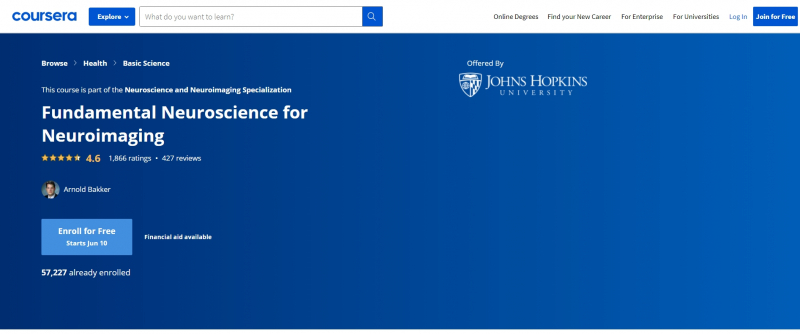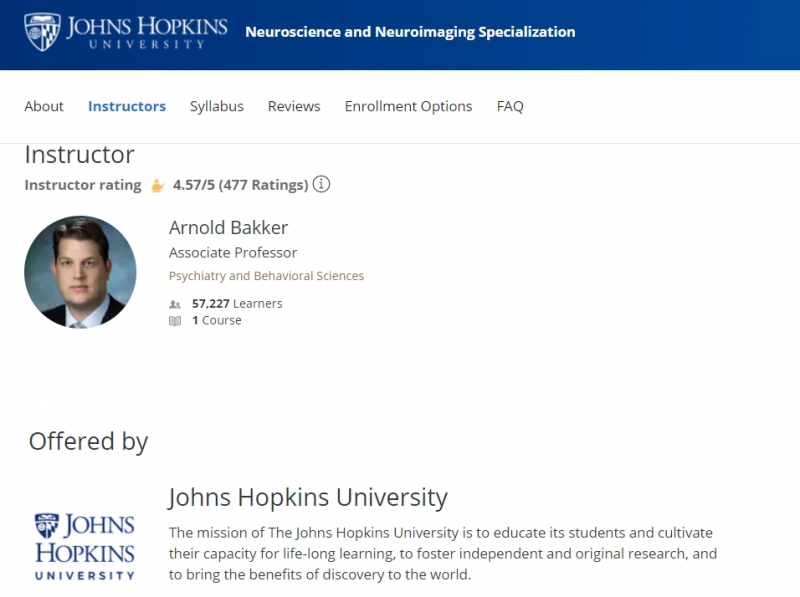Fundamental Neuroscience for Neuroimaging Offered By Johns Hopkins University
Neuroimaging techniques are becoming more widely used in clinical treatment and basic research. This course is designed for students and professionals and will cover the fundamental principles of neuroimaging methodologies as they apply to human subjects research, as well as the neuroscience ideas and terminology needed for a basic grasp of neuroimaging applications. The course covers the history of neuroimaging, an overview of different neuroimaging applications, such as functional MRI, diffusion tensor imaging, magnetic resonance spectroscopy, perfusion imaging, and positron emission tomography imaging, as well as an introduction to neuroimaging physics and image formation.
Each will be evaluated in terms of its unique methodology, signal source, goals, and constraints. The course will also cover core neuroscience concepts such as structural and functional human neuroanatomy, cognitive domains, and experimental design that are important for understanding the implementation of neuroimaging methodologies.
This course offers:
- Flexible Schedule: Set and maintain flexible deadlines.
- Certificate : Earn a Certificate upon completion
- 100% online
- Beginner Level
- Approx. 9 hours to complete
- Subtitles: Arabic, French, Portuguese (European), Italian, Vietnamese, German, Russian, English, Spanish
- Course 1 of 4 in the Neuroscience and Neuroimaging Specialization
Coursera Rating: 4.6/5.0
Enroll here: https://www.coursera.org/learn/neuroscience-neuroimaging










